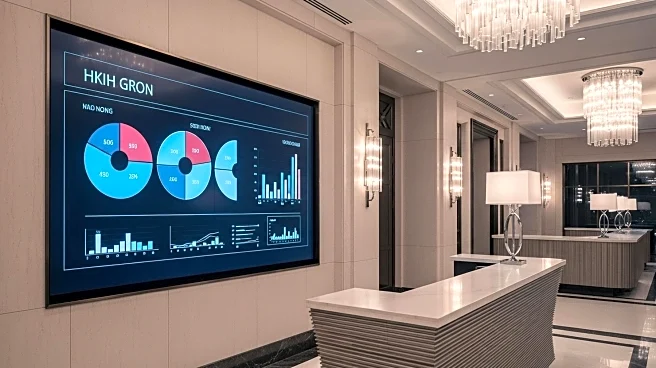What is the story about?
What's Happening?
Hotels across the globe are increasingly adopting data segmentation strategies to enhance guest experiences and drive revenue growth. By moving beyond broad demographic targeting, properties are focusing on microsegmentation to personalize guest interactions and improve booking conversions. Bunkhouse Hotels, a North American hospitality group, leveraged Revinate Marketing to identify key audience segments, resulting in $6.1 million in lifetime revenue from segmented campaigns. Similarly, Ambiente Sedona in Arizona created segment personas to deliver personalized experiences, achieving $780,000 in lifetime direct revenue via email. Mangia’s Resorts in Sicily and Sardinia increased direct revenue by €137,000 in the first month through targeted segmentation. These examples highlight the effectiveness of segmentation in fostering guest loyalty and increasing profitability.
Why It's Important?
The shift towards data-driven segmentation in the hospitality industry is crucial for maintaining competitive advantage and enhancing guest satisfaction. By tailoring marketing efforts to specific guest segments, hotels can create more meaningful connections, leading to increased repeat stays and direct bookings. This approach not only boosts revenue but also strengthens brand loyalty, as guests receive personalized experiences that align with their preferences. As the industry faces challenges from online travel agencies (OTAs), direct booking strategies enabled by segmentation offer a way to reclaim market share and improve profitability. Hotels that successfully implement these strategies can expect to see significant improvements in their marketing ROI and guest engagement metrics.
What's Next?
As more hotels recognize the benefits of segmentation, the trend is likely to expand, with properties investing in advanced data analytics and AI-powered platforms to refine their strategies. This could lead to further innovations in personalized marketing and guest experience management. Hotels may also explore partnerships with technology providers to enhance their segmentation capabilities and integrate guest data across multiple channels. The ongoing evolution of segmentation practices will likely influence industry standards, encouraging more properties to adopt similar approaches to remain competitive. Additionally, the focus on direct bookings may prompt hotels to develop new loyalty programs and incentives to attract and retain guests.
Beyond the Headlines
The adoption of segmentation strategies in the hospitality industry raises important ethical considerations regarding data privacy and guest consent. As hotels collect and analyze vast amounts of personal data, they must ensure compliance with privacy regulations and maintain transparency with guests about how their information is used. This shift also highlights the growing importance of digital literacy among hotel staff, who must be equipped to manage and interpret complex data sets. Furthermore, the emphasis on personalization may lead to cultural shifts within the industry, as hotels strive to balance technological innovation with traditional hospitality values.














